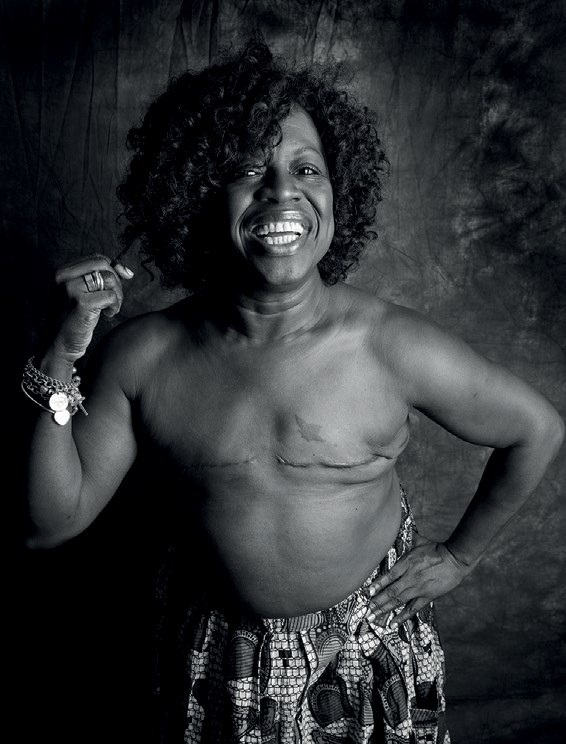6 Things You Can Do To Reduce Your Risk of Breast Cancer
October is recognised globally as a time to celebrate breast cancer survivors and remember those we have lost to the disease. As we close out the month, we mustn’t end the conversation at that. Every year, we talk about this particular form of cancer that has plagued generations past and is still very fatal today, but it can be prevented.
When diagnosed early and treated before it spreads, there is a 99% chance of a five-year survival rate. We’ve put these simple tips together to inspire awareness, knowledge and lifestyle changes that prioritize your health to increase cancer prevention and early detection.
1. Get Smart: Know your risk
Prevention has to start with knowledge. Women at an increased risk of breast cancer may need to start screening earlier or be screened more frequently than women of average risk. You might be at an increased risk if you:
- Are overweight or obese or are not physically active.
- Have mutations of BRCA-1, BRCA-2 or PALB-2 genes.
- Have a family or personal history of breast, colorectal or ovarian cancer.
- Began menstrual period before 12 or began menopause after 55.
- Have never had children or had your first child after age 30.
- Are currently using or have recently used birth control pills.
- Have used hormone replacement therapy (with estrogen and progesterone) for more than 10 years.
2. Have “The Talk” (no, not that talk)
Take advantage of the shared moments with your relatives to talk about your family history of cancer. This is an easy step to take to learn about your cancer risk. Remember to ask about the age of diagnosis—your risk increases if your mother was diagnosed with breast or ovarian cancer before age 50.
3. Get Active
Staying active is key to staying healthy. Exercising for at least 30 minutes a day, five days a week, can make a big impact on your health and is an easy way to reduce your cancer risk. Being physically active can also help you to lower your risk by maintaining a healthy weight.
4. If You Smoke, Stop. If You Drink, Limit Your Intake
This one is pretty straightforward. For years we’ve known the health costs that come with smoking. It can weaken the immune system, one of our bodies’ best defences against cancer, and can damage or change a cell’s DNA, which can lead to the growth of a tumour. Quitting isn’t always easy, but as far as breast cancer prevention goes, it is a very important decision to make.
Drinking alcohol is linked to breast and several other cancers. Once ingested, your body breaks it down into a chemical that can damage or change a cell’s DNA, potentially leading to the growth of a tumour. The approved Dietary Guidelines recommends that if you drink, you limit your consumption to one drink a day for women and two a day for men.
5. Don’t Wait For Symptoms To Appear—Get Screened
Screening for breast cancer can seem scary, but the sooner it’s found, the sooner it can be treated and the better your odds for remission. From ages 25-39, talk with your health care professional at least once every three years for risk assessment, risk reduction counselling and a clinical breast exam. At age 40, begin getting screened annually.
If you have a personal family history or are at increased risk of breast cancer, all of this could be different for you. Talk to your health care professional about your risk and assess your options together.

Breast Cancer Survivor
6. Check Yourself Regularly
Know your body so you know when it’s changing. Between regular screenings or exams, look out for the following:
- A lump, hard knot or thickening in the breast.
- A lump under your arm.
- A change in the size or shape of a breast.
- Nipple pain, tenderness or discharge, including bleeding.
- Itchiness, scales, soreness or rash on the nipple.
- A nipple turning inward or inverted.
- A change in colour and texture (dimpling, puckering or redness).
- A breast that feels warm or swollen.
- If something feels different or off, don’t be afraid to speak up or ask your health care professional questions.
Do more than just post on social media. Share these tips with at least three women in your life to spread prevention and early detection information that can save lives.
Self-identifies as a middle child between millennials and the gen Z, began writing as a 14 year-old. Born and raised in Lagos where he would go on to obtain a degree in the University of Lagos, he mainly draws inspiration from societal issues and the ills within. His "live and let live" mantra shapes his thought process as he writes about lifestyle from a place of empathy and emotional intelligence. When he is not writing, he is very invested in football and sociopolitical commentary on social media.






